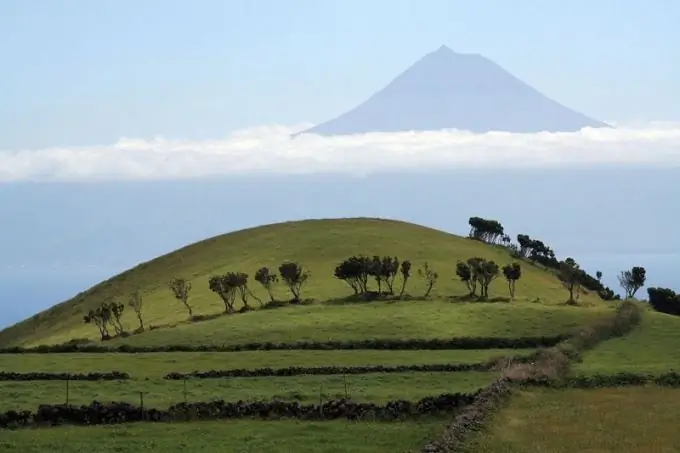- Author Antonio Harrison harrison@cultureoeuvre.com.
- Public 2023-12-16 07:44.
- Last modified 2025-01-22 21:44.
In addition to official names, many countries also have unofficial, poetic ones. Their origins vary, but they almost always reflect some specific feature of the country.

Japan - "Land of the Rising Sun"
Poetic names of Asian countries are especially common. So, Japan is known as the "Land of the Rising Sun". The Japanese call their country "Nippon" or "Nihon", which translates as "homeland of the sun." Thus, "Land of the Rising Sun" is almost an exact translation of the original name of the country. Such a poetic name appeared thanks to the Chinese: it was they who called Japan "the homeland of the sun" in the correspondence of the Song dynasty with the Japanese emperor. This was due to the fact that Japan is located east of China, on the side where the sun rises.
Korea - "Country of Morning Freshness"
Korea is called "the country of morning freshness". This is due to the ancient name of Korea, Joseon. This name consists of two hieroglyphs, the first of which now also means "morning", and the second - "freshness". Scientists are inclined to believe that the word "Joseon" initially did not carry such a poetic semantic load. This name has come down to the present day from Chinese manuscripts that distorted the Korean pronunciation. In addition, the pronunciation of Chinese characters has changed over time. Now the name "Joseon" for Korea is used only in the DPRK. In South Korea, their country is called "Namkhan".
China - "Celestial Empire"
You can often hear how China is called "Celestial Empire". For the first time this name appeared in China before our era and originally meant the entire world known to the Chinese. Then "Celestial Empire" was called only the territory in which the power of the Chinese emperor, who in Confucian ideology was the representative of heaven on earth, was spreading. At present, in China, the "Celestial Empire" is understood as the whole world, but in Russia this is precisely what China is called.
England - "Foggy Albion"
England is called "Foggy Albion". Albion is the oldest name of the British Isles, translated from Latin as "white mountains". This is how the ancient Romans named the islands they discovered due to the fact that the coast of England was formed of chalk rocks. The epithet "foggy" is explained by the fact that the islands of Great Britain are often shrouded in very thick fog.
Ireland - the emerald island
Due to the mild climate in Ireland, there is a lot of greenery all year round. That is why this country is called the "Emerald Isle". In addition, green is the national color of Ireland, strongly associated with the most famous national holiday - St. Patrick's Day.
Finland - the land of a thousand lakes
There are about 190,000 lakes in Finland, which form an extensive lake system. Lakes play a special role in Finnish nature. It is not surprising that this country received the poetic name "Land of a Thousand Lakes".






